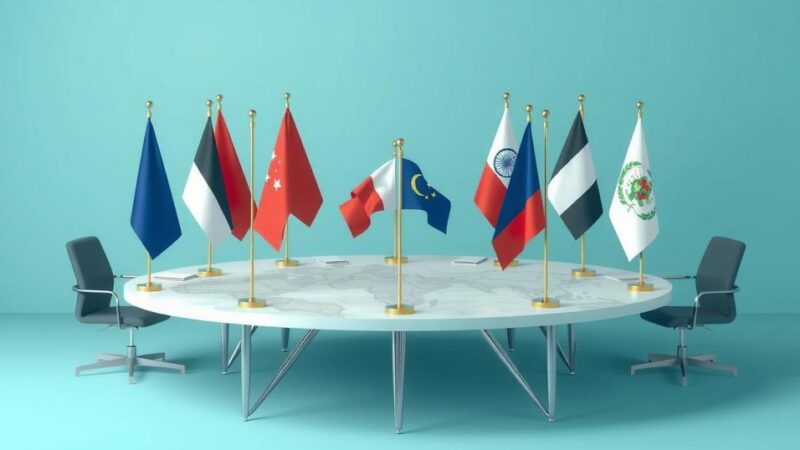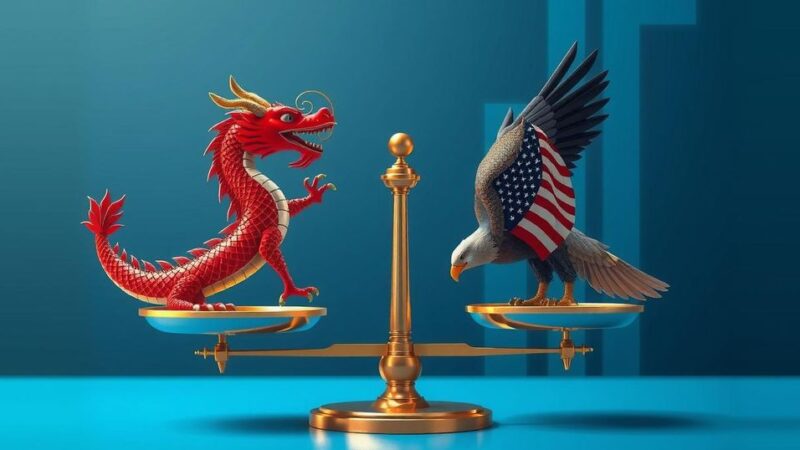French President Emmanuel Macron has reinvigorated his role in global diplomacy, enhancing ties with U.S. President Trump and supporting Ukraine. After overcoming recent domestic crises, he is now striving for a more autonomous European defense strategy, engaging with British and German leaders.
French President Emmanuel Macron has reasserted himself in global diplomacy, recently forging closer ties with U.S. President Donald Trump, advocating for peace in Ukraine in collaboration with British leadership, and advancing his aspiration to enhance European defense. Initially perceived as weakened by a political crisis, Macron has pivoted to foreign policy while delegating domestic challenges to his Prime Minister.
At 47 years of age, Macron is among the few leaders who maintained rapport with Trump throughout his first term, characterized by a mutual friendship despite ideological differences. Macron was the first European leader to engage with Trump post-election, advocating to keep American support for Ukraine amidst tensions with Russia.
Since his inauguration in 2017, Macron has championed a more autonomous Europe, previously calling for unified military initiatives in a landmark speech at Sorbonne University. Criticizing NATO’s perceived decline, he has persistently pushed for the EU to emerge as a formidable strategic powerhouse.
In a recent pivotal address, Macron proposed extending French nuclear deterrence to European allies, aiming to bolster continental security. This strategy aligns with General Charles de Gaulle’s vision of enhancing France’s global presence through an independent nuclear capability.
Macron’s diplomatic endeavors have received encouragement from British Prime Minister Keir Starmer, who seeks to enhance EU defense collaboration as part of mending ties post-Brexit. Both leaders are coordinating efforts to support Ukraine amidst ongoing instability, exploring the deployment of European forces to ensure peace enforcement.
Friedrich Merz, Germany’s recently elected leader, has also prioritized strengthening European unity and independence from U.S. influence, indicating a willingness to discuss nuclear partnerships with France. Although details from their initial discussions remain undisclosed, alignments in their visions for Europe were reportedly evident.
Conversely, Russia has criticized Macron’s military posturing, asserting that his actions are intended to distract from domestic issues facing France. The Russian Ministry of Foreign Affairs dismissed Macron’s nuclear deterrence proposals as a dangerous escalation, reflecting ambitions to dominate European nuclear policies.
Following his 2022 re-election, Macron contended with challenges at home, particularly stemming from a call for early legislative elections. This misstep led to turmoil in parliament, yet the French Constitution affords him broad powers within foreign affairs. Critics, however, voice concerns about his leadership style and decision-making capacity in domestic and international matters.
In summary, President Emmanuel Macron’s diplomatic resurgence marks a significant shift from recent domestic challenges, highlighting his commitment to fortifying European defense and solidifying international partnerships. His strategic engagements with both the United States and European allies illustrate France’s evolving role on the global stage. Despite facing criticism, Macron continues to assert his vision for a more independent and robust European defense framework.
Original Source: www.jordannews.jo






